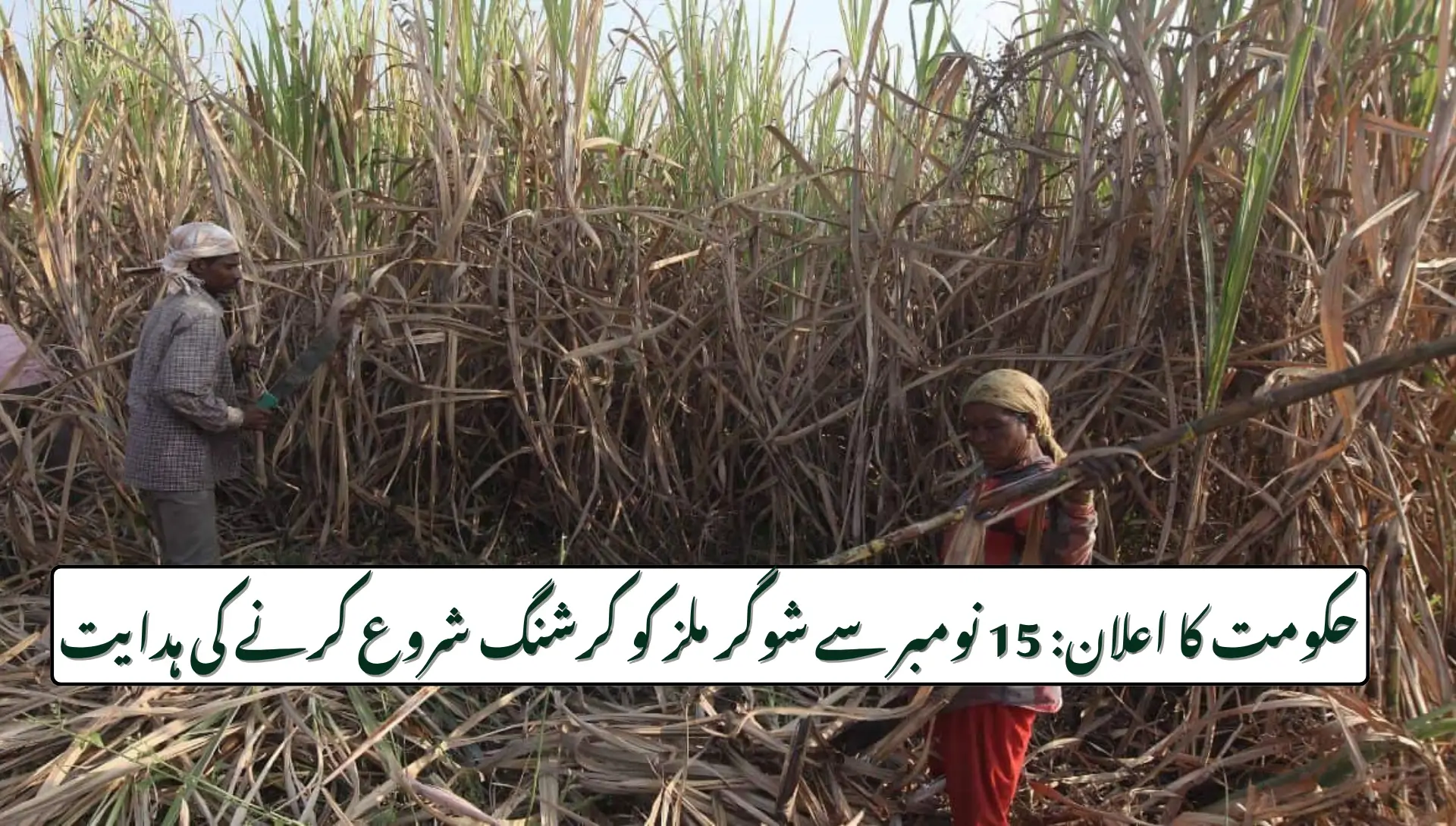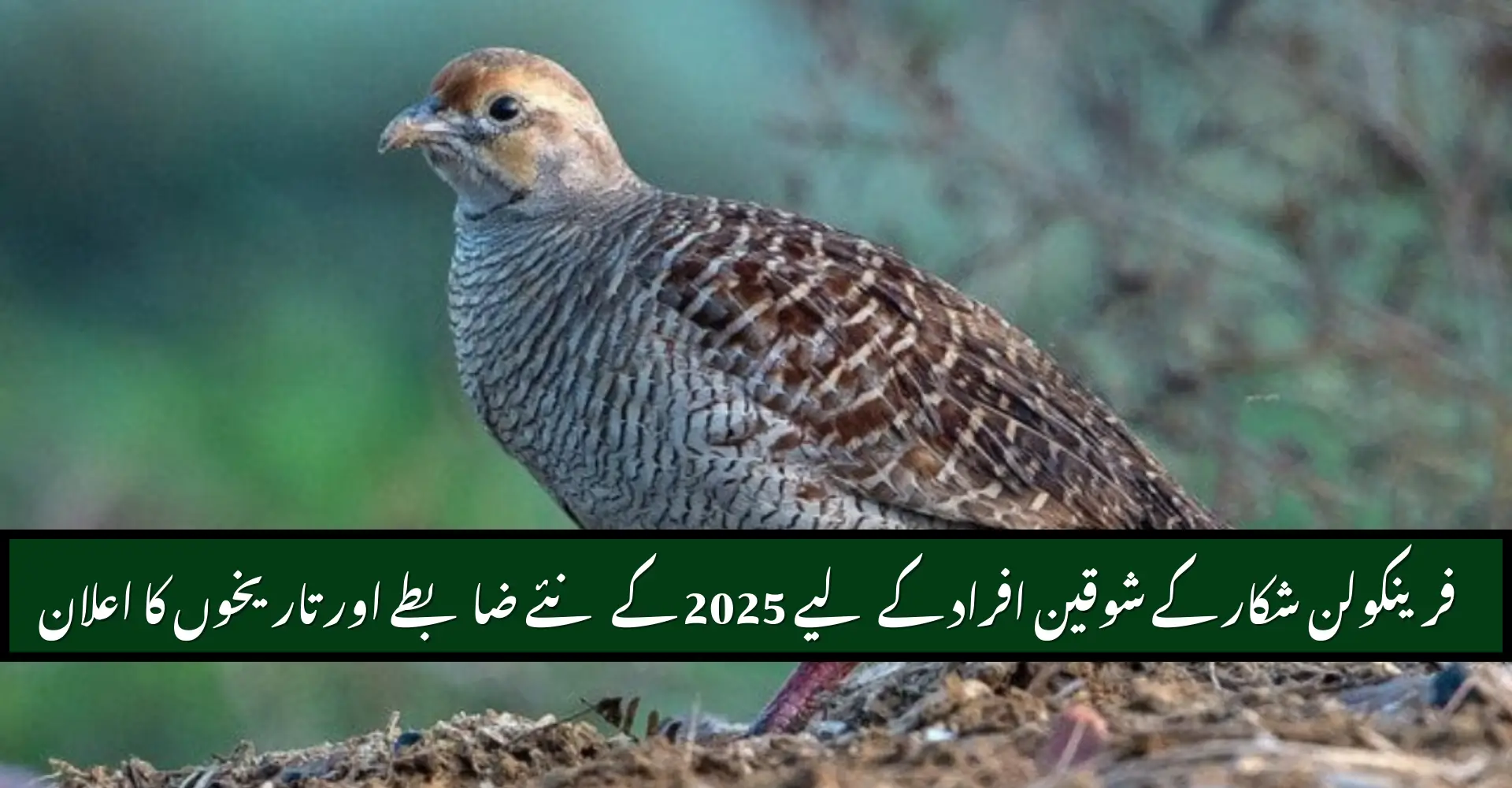Govt Confirms Sugarcane Crushing Season to Begin November 15 — Action Against Delays. The Government of Pakistan has officially confirmed that the sugarcane crushing season 2025–26 will begin on November 15, as decided by the Sugar Advisory Board (SAB) chaired by Minister for National Food Security and Research Rana Tanveer Hussain.
This long-awaited announcement aims to protect farmers’ rights, ensure timely payments, and prevent delays that have previously hurt sugarcane growers across Punjab, Sindh, and Khyber Pakhtunkhwa.
Why the Decision Matters
Every year, millions of Pakistani farmers depend on sugarcane sales as their main income source. A delayed crushing season can mean weeks—or even months—without payment. By confirming the official start date of November 15, the government has ensured that mills and farmers can coordinate early, allowing for smoother harvesting, crushing, and payments.
According to Rana Tanveer Hussain,
“Clearing farmers’ dues is a top priority. The government will not tolerate any exploitation. Mills must begin operations on time or face strict action.”
Record Sugarcane Crop Expected in 2025–26
The 2025–26 season is projected to be one of the strongest harvests in recent years. Preliminary reports from the Ministry of National Food Security and Research show:
| Category | 2024–25 Season | 2025–26 Forecast | Change (%) |
|---|---|---|---|
| Total Sugarcane Output | 84 million tonnes | 85 million tonnes | +1.2% |
| Cultivated Area | 1.192 million hectares | 1.213 million hectares | +1.7% |
| Average Yield | 70.4 tonnes/ha | 70.8 tonnes/ha | +0.5% |
This growth reflects improved seed quality, better irrigation, and government incentives for farmers to expand cultivation. Punjab remains the largest producer, followed by Sindh and Khyber Pakhtunkhwa.
Government’s Focus: Farmers First
1. Ensuring Timely Payments
A key concern for sugarcane growers has been delayed payments by sugar mills. In previous years, many farmers had to wait months for dues, affecting their financial stability.
To address this, the government has:
- Directed all provincial Cane Commissioners to monitor mills daily.
- Ordered timely issuance of payment receipts for every farmer.
- Warned that any mill delaying payments beyond 15 days of cane delivery will face legal penalties under the Sugar Factories Control Act.
2. Monitoring Compliance
The Sugar Advisory Board (SAB) has mandated that provincial governments coordinate closely with mill owners and district administrations.
Special monitoring teams will ensure:
- Mills start operations no later than November 15.
- Farmers’ payments are processed digitally for transparency.
- Weighbridges and quality testing systems are installed properly.
3. Protecting Farmers’ Interests
Minister Rana Tanveer Hussain emphasized that no mill will be allowed to exploit farmers. The ministry has opened a dedicated complaint cell where growers can report payment delays or discrepancies in weighing and pricing.
Industry Alignment: Government and Sugar Mills on the Same Page
The announcement followed a joint consultation between the Pakistan Sugar Mills Association (PSMA), provincial governments, and officials from the Ministries of Industries, Production, and Commerce.
The meeting, chaired by Rana Tanveer Hussain, was attended by Chaudhary Zaka Ashraf, a key representative of PSMA, and senior bureaucrats. This marks a rare alignment between the government and industry, ensuring both farmers’ rights and price stability for consumers.
Key Outcomes of the Sugar Advisory Board Meeting
- Uniform Crushing Date: November 15, 2025, across all provinces.
- Zero-Tolerance Policy: Action against mills failing to start on time.
- Price Stability Plan: Coordination between ministries to stabilize retail sugar prices.
- Digital Monitoring: Use of data dashboards to track daily sugarcane inflows and mill output.
Impact on the Sugar Industry and Economy
1. Stabilizing Sugar Prices
A timely start will help stabilize sugar supply in the local market, avoiding artificial shortages or sudden price spikes. The coordinated effort between provinces will minimize black-marketing and speculation in the sugar trade.
2. Boosting Farmers’ Confidence
By guaranteeing timely crushing and payment, the government aims to restore trust among cane growers. The farming community has long demanded predictability and transparency in mill operations—this step finally meets that demand.
3. Improving Export Potential
With record sugarcane production expected, Pakistan may produce a surplus that could open new export opportunities in 2026. Exporting refined sugar could bring in valuable foreign exchange earnings, supporting the trade balance.
Rana Tanveer Hussain’s Commitment to Agricultural Reform
Since assuming office, Minister Rana Tanveer Hussain has prioritized agricultural modernization and farmer protection. His leadership in the SAB demonstrates a clear intent to reform the sugar sector—an industry historically affected by delays, disputes, and inefficiencies.
He stated:
“This year’s crushing season will set a benchmark for future efficiency and fairness. Every farmer will get paid on time, and every mill will be accountable.”
Under his ministry, digital reporting tools and real-time dashboards are being developed to track mill operations, crop inflows, and payment transactions across provinces.
Provincial Coordination and Enforcement
Punjab
- Largest sugarcane-producing province.
- The Punjab Cane Commissioner has issued directives to all 46 mills to begin crushing by November 15.
- Farmers have been advised to supply only to operational mills and report non-payment via helplines.
Sindh
- Crushing to begin no later than November 20.
- The Sindh government has formed joint teams with PSMA to monitor mill readiness.
- Inspections will focus on weighbridge accuracy and price compliance.
Khyber Pakhtunkhwa
- Smaller output but vital for local consumption.
- Local administrations to ensure fair purchasing rates and on-time payments to farmers in districts like Dera Ismail Khan and Charsadda.
Challenges Ahead
Despite the positive announcement, experts note that several challenges could impact implementation:
- Delayed Readiness of Mills – Some mills still face maintenance or energy issues.
- Weather Variability – Early rains or floods could affect harvesting schedules.
- Price Disputes – Farmers and mills often disagree over cane purchase rates.
- Transport Bottlenecks – Poor infrastructure in rural areas can slow delivery of crops.
However, the Ministry of Food Security and Research has pledged close coordination with provincial bodies to handle these challenges promptly.
Sugarcane Price and Payment Trends (2024–25 vs. 2025–26)
| Province | 2024–25 Cane Rate (PKR/40kg) | Expected 2025–26 Rate (PKR/40kg) | Payment Window |
|---|---|---|---|
| Punjab | 425 | 450–470 | Within 15 days |
| Sindh | 440 | 460–480 | Within 15 days |
| KP | 420 | 440–460 | Within 15 days |
This table shows a modest price increase for farmers in line with inflation and production costs, ensuring growers receive fair compensation for their efforts.
Sugar Industry Experts’ Reactions
Industry insiders have largely welcomed the government’s timely announcement.
Chaudhary Zaka Ashraf of PSMA remarked that early coordination with the government would “help streamline production, prevent stockpiling, and stabilize consumer prices.”
Agricultural economists have also pointed out that an 85-million-tonne crop could reduce Pakistan’s sugar import dependency and possibly make the country a net exporter in the coming years.
Sustainability and Future Outlook
To ensure long-term stability, the government is planning several sustainability measures:
- Introduction of high-yield sugarcane varieties
- Modernization of crushing plants to reduce waste
- Research partnerships with agricultural universities
- Climate-resilient farming techniques
If executed effectively, these steps could make Pakistan’s sugar industry globally competitive and environmentally responsible.
FAQs
1. When does sugarcane crushing start in Pakistan?
The government has confirmed that the 2025–26 sugarcane crushing season will begin on November 15, 2025, across all provinces.
2. Who announced the 2025–26 sugarcane crushing date?
The announcement was made by the Sugar Advisory Board (SAB), chaired by Minister Rana Tanveer Hussain, in coordination with the Pakistan Sugar Mills Association.
3. What happens if sugar mills delay crushing?
Mills failing to start operations by the official date will face legal action, fines, or license suspension. Provincial cane commissioners will enforce these rules.
4. How much sugarcane will Pakistan produce in 2025–26?
Production is forecasted at around 85 million tonnes, slightly higher than last year’s 84 million tonnes.
5. Will farmers receive timely payments this year?
Yes, the government has ensured digital monitoring of payments and introduced strict deadlines to prevent delays.
Conclusion
The government’s confirmation that the sugarcane crushing season 2025–26 will begin on November 15 is a decisive step toward fairness, transparency, and stability in Pakistan’s sugar industry. By aligning government policy with industry operations, it promises a season where farmers are paid on time, mills operate efficiently, and consumers benefit from stable prices.














